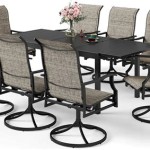The Versatility and Functionality of Outdoor Food Carts With Wheels
Outdoor food carts with wheels represent a dynamic and adaptable element within the culinary landscape. These mobile units offer a cost-effective entry point for aspiring restaurateurs and provide established businesses with the opportunity to expand their reach and experiment with new concepts. The mobility inherent in these carts allows for strategic placement in high-traffic areas, capitalizing on seasonal events, and quickly adapting to shifting consumer demands. This article will explore the various aspects of outdoor food carts with wheels, encompassing their design, functionality, regulatory considerations, and potential benefits for food service entrepreneurs.
The popularity of outdoor food carts has grown considerably in recent years, driven by several factors. Consumer preferences are evolving, with an increasing demand for diverse and convenient dining options. Food carts cater to this need by offering a wide array of cuisines and specialties, often at competitive prices. Furthermore, the relatively low overhead costs associated with operating a food cart, compared to a traditional brick-and-mortar restaurant, make it an appealing option for those seeking to enter the food service industry with limited capital. The aesthetic appeal of well-designed food carts also contributes to their success, creating a visually engaging and inviting experience for customers.
Design and Construction Considerations
The design and construction of an outdoor food cart with wheels are crucial factors influencing its functionality, durability, and compliance with health and safety regulations. A well-designed cart optimizes workflow, ensures efficient food preparation and service, and provides a safe and comfortable environment for both staff and customers. The choice of materials is paramount, prioritizing durability, hygiene, and weather resistance. Stainless steel is a common selection for food preparation surfaces due to its non-porous nature and ease of cleaning. The structural frame should be robust enough to withstand continuous use and transportation, often constructed from steel or aluminum.
Wheel selection is another critical element. The size, type, and number of wheels impact the cart's maneuverability and stability. Larger wheels are generally preferred for navigating uneven surfaces, while swivel casters enhance maneuverability in tight spaces. Brakes are essential for securing the cart in place during operation and preventing accidental movement. Furthermore, the cart’s dimensions must be carefully considered, taking into account the available space at potential vending locations and any restrictions imposed by local regulations. Height is also a factor, ensuring comfortable working conditions for staff and easy access for customers.
Weather protection is a key design consideration for outdoor food carts. A sturdy awning or roof provides shelter from sun, rain, and wind, protecting both food and staff. Side panels can be added to further shield the work area from the elements and enhance privacy. Ventilation is also critical, particularly for carts equipped with cooking appliances. Proper ventilation prevents the buildup of heat, smoke, and fumes, ensuring a safe and comfortable working environment. Moreover, attention must be paid to the overall aesthetics of the cart, creating a visually appealing design that attracts customers and reflects the brand identity.
Internal layout and organization are paramount for efficient operation. Ample counter space is necessary for food preparation and service. Storage compartments should be strategically placed to maximize space utilization and ensure easy access to ingredients and supplies. Refrigeration units are essential for maintaining the safety and quality of perishable items. The placement of equipment must be carefully planned to optimize workflow and minimize unnecessary movement. Electrical wiring and plumbing must be properly installed and maintained to ensure safety and compliance with local codes. The integration of technology, such as point-of-sale systems and digital menu boards, can streamline operations and enhance the customer experience.
Functionality and Operational Aspects
The functionality of an outdoor food cart with wheels is directly linked to its operational efficiency and profitability. A well-designed cart facilitates smooth and efficient food preparation, minimizes waste, and enhances customer service. The choice of equipment is crucial, selecting appliances that are appropriate for the menu and capable of handling peak demand. Proper training of staff is essential to ensure efficient operation and adherence to food safety protocols. A streamlined workflow, from order taking to food preparation to payment processing, is critical for maximizing throughput and minimizing wait times.
Maintaining food safety is a paramount concern for outdoor food cart operators. Adherence to strict hygiene standards is essential to prevent foodborne illnesses and protect public health. Regular hand washing, proper food handling techniques, and temperature control are crucial. Food must be stored and prepared at safe temperatures to prevent bacterial growth. Cleaning and sanitizing of surfaces and equipment must be performed regularly. Proper waste disposal is also essential to maintain a clean and sanitary environment. Compliance with local health codes is mandatory, and regular inspections are typically conducted to ensure adherence to regulations.
Strategic placement of the food cart is a key factor in its success. High-traffic areas, such as parks, festivals, and business districts, offer the greatest potential for attracting customers. Consideration should be given to the demographics of the target market and the types of food that are likely to appeal to them. Proximity to complementary businesses can also be beneficial. It is essential to obtain the necessary permits and licenses from local authorities before setting up shop. Adherence to zoning regulations and parking restrictions is also crucial. Careful planning and research are essential to identify the most profitable and compliant location for the food cart.
Marketing and promotion play a vital role in attracting customers and building brand awareness. Utilizing social media platforms to promote the food cart and its offerings is a cost-effective way to reach a wide audience. Offering specials and discounts can incentivize customers to try the food. Participating in local events and festivals can increase visibility and generate new business. Building relationships with local businesses and community organizations can also be beneficial. Providing excellent customer service is essential for creating a loyal customer base. Gathering customer feedback and using it to improve the menu and service is a valuable way to enhance customer satisfaction.
Regulatory Compliance and Permits
Operating an outdoor food cart with wheels necessitates adhering to a complex web of regulations and obtaining the necessary permits and licenses. These requirements vary significantly depending on the location and type of food being served. Ignorance of these regulations can result in fines, penalties, and even the closure of the business. It is essential to conduct thorough research and consult with local authorities to ensure full compliance.
Health permits are typically required to operate a food cart, ensuring that the food preparation and handling practices meet established safety standards. These permits often involve inspections of the cart to verify compliance with hygiene regulations, equipment requirements, and food storage protocols. Fire safety permits may also be necessary, particularly for carts equipped with cooking appliances that utilize open flames or heating elements. These permits ensure that the cart is equipped with appropriate fire suppression equipment and that fire safety procedures are in place.
Business licenses are generally required to operate any type of business, including a food cart. These licenses register the business with the local government and authorize it to conduct commercial activities. Zoning permits may also be necessary to ensure that the location of the food cart complies with local zoning regulations. These regulations may restrict the types of businesses that can operate in certain areas or limit the hours of operation. Vending permits are typically required to operate a food cart on public property, such as sidewalks or parks. These permits often involve fees and restrictions on the location and operation of the cart.
Compliance with labor laws is also essential when operating a food cart that employs staff. This includes adhering to minimum wage laws, providing workers' compensation insurance, and complying with regulations regarding employee breaks and working hours. Proper insurance coverage is also crucial to protect the business from liability in the event of accidents, injuries, or property damage. This may include general liability insurance, product liability insurance, and workers' compensation insurance. It is essential to consult with legal and insurance professionals to ensure that the business is adequately protected.
Navigating the regulatory landscape can be challenging, but it is essential for the long-term success and sustainability of the food cart business. Proactive communication with local authorities and adherence to all applicable regulations can help to avoid costly fines and penalties and ensure a safe and compliant operation.

Outsunny Rattan Wicker Serving Cart With 2 Tier Open Shelf Outdoor Wheeled Bar Brakes For Poolside Garden Patio

Sudzendf Black Outdoor Stainless Steel Tabletop Grill Cart With Wheels Hooks And Side Shelf Toutd1942

Betisef Three Shelf Movable Outdoor Grill Cart Oven Stand Multifunctional Kitchen Food Prep Table With Drawer Black Solid Steel Dining

Outdoor Grill Carts With Storage Cabinet Food Preparation Cart Dining Table Ebay

Customizable Outdoor Leisure Dining Truck Mobile Ice Cream Kiosk Three Wheel Food Cart

Royal Gourmet Kitchen Cart With Wheels Outdoor Bbq Grill Food Prep Worktable Ebay

Snack Cart On Wheels Mobile Food Vendor Towable Outdoor Kitchen For Street Customizable Machine Station From Iris321 802 02 Dhgate Com

Mobile Vending Cart 3k King Intl Carts And Kiosks

Exdeerjoy Outdoor Grill Dining Cart Movable Bbq Trolley Oven Stand W Shelves Hooks

Mini Mobile Ice Cream Cart Outdoor Use Food Trolley Share With You








